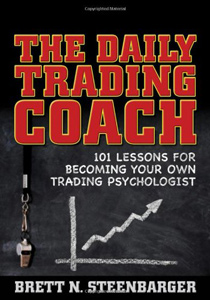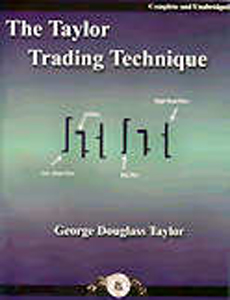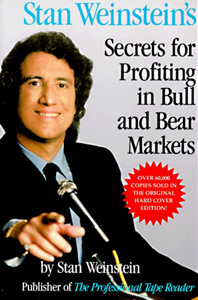Share Trading is a Business

Further Reading
As a professional trader, you should treat share trading as a professional business. If your are actively trading stocks, forex, or CFD’s it is of vital importance for you to treat your trading activities as a business. Firstly it is psychologically beneficial to see your trading as a business – as you will treat it with respect. Secondly it is important financially as it has tax implications.
Share trading is an interesting (and exciting) vocation to choose. The Australian Tax Office(ATO) defines a business as "any profession, trade, employment, vocation or calling, but does not include occupation as an employee". In the eyes of the tax office, are you treating your share trading as a business (i.e. you are a share trader) or are you simply an investor (i.e. you are a share holder). There are a number of factors which the tax office examines - standards which you too can use to see if you measure up.
- the nature of the activities, particularly whether they have the purpose of profit making
- the repetition, volume and regularity of the activities, and the similarity to other businesses in your industry
- the keeping of books of accounts and records of trading stock, business premises, licences or qualifications, a registered business name and an Australian business number
- the volume of the operations, and
- the amount of capital employed.
Share Trading Business: Trading for a Profit
Of course, everyone show is trading shares is in it to make a monetary profit. Shares can be held as an investment or for trading purposes. However there is a slight difference to the profile of an share holder compared to an active share trader. A share trader who is operating a business of trading carries out their trading with the purpose of earning income from buying and selling shares. While a share holder would earn an income from dividends and receipts and hence is not carrying on a business.
All businesses have a business plan. Conversely, a share trader constructs a share trading plan which should reveal the trader’s goals, techniques, analysis rules for each trade investment, research and the methods you use in deciding whether to hold, buy or sell your stocks.
Share Trading Business: Trade Frequently
Another criteria to pass for a share trader is repetition and regularity of activities. Just like a business selling widgets, they do so repetitively and frequently. I’m not saying to trade frequently to simply pass this criteria - but what it does mean is that professional share traders show a regular and frequent pattern of trade transactions.
Share Trading Business: Treat it like a Business and Keep Records
A share trader who is undertaking a share trading business is typically expected to be involved in "the study of daily and longer-term trends, analysis of a company's prospectus and annual reports, and the seeking of advice from experts. Any qualifications, expertise, training, or skills you may have in this area would be relevant to determining whether your activities constituted a business." Also, it is important to keep record of your trades – this is of course a no-brainer; how else are you going to find out if you are running at a profit or loss? Or if your trading technique/strategy is profitable?
Share Trading Business: Volume
This is probably another point which had to be stated by bureaucrats to make the guide comprehensive. If you are truly carrying on a share trading business and are trading frequently – you would surely amass a massive amount of trading volume (or account turnover).
Share Trading Business: Trading Capital
People can be share traders and not have a massive amount of capital. This is possible now with the leverage provided using derivatives like Warrants, CFD’s or Forex. This is what the tax office says: "The amount of capital that you invest in buying shares is not considered to be a crucial factor in determining whether you are carrying on a business of share trading. This is an area in which it is possible to carry out business activities with a relatively small amount of capital. Conversely, you may also invest a substantial amount of capital and not be considered to be a share trader. "
- How to Trade Forex and Gold Options
- How to Trade the Gold Price and Profit!
- Forex Trading the EUR/USD Pair € EURO and $ US Dollar
- How to Trade Stock Market Indices S&P500
- How to Trade Crude Oil
- Forex Trading Psychology
- What Are Broker Recommendations?
- Free Tickets to Trading & Investing Seminar & Expo ($18) Brisbane 2013
- Stock Calc App
- All About Warrants
- Introduction to Exchange Traded Funds
- Introduction to Exchange Traded Funds: Features
- Introduction to Exchange Traded Funds: Domestic ETFs
- Introduction to Exchange Traded Funds: International ETFs
- Exchange Traded Commodities
- Australian Stock Scan
- Australian Online Share Trading
- List of Trading Books
- Interesting Thoughts about the Australian Dollar
- What's the Meaning of Hawkish?
- Do You Know How To Use the P/E Ratio
- Trading, Religion and Politics - Do They Have Anything in Common?
- Shares that are Volatile that Double and Half in the Short Term
- Telstra (TLS) T3
- Margin Call by E-mail
- The Cost of Holding a Position
- Lack of Disclosure: Compensation from ASX Listed Company
- Unrealistic Returns and Benchmarks
- CMC Markets Down
- Quality versus Quantity Forex Trading
- Woolworths 1H Sales $30.7bn up 3.2%
Date added 31-01-2013 - ASIC Fines CommBank's CommSec
Date added 25-09-2012 - Industry Super Network Calls to Ban High Frequency Trading (HFT)
Date added 22-09-2012 - NAB Launches Online Share Trading Platform
Date added 19-09-2012 - Reserve Bank of Australia Says 23 Countries Holding AUD
Date added 18-09-2012 - Australia Post Digital Mailbox
Date added 10-09-2012 - Winners and Losers of Trading for Week 2
Date added 16-01-2012 - 2012's First Week of the Best and Worst Traded Stocks
Date added 09-01-2012 - 2011's Last Best and Worst Traded Stocks
Date added 05-01-2012 - Best and Worst Pre-Christmas Traded Stocks
Date added 30-12-2011 - Trading Winners and Losers for Dec. 12-16
Date added 19-12-2011 - Best and Worst Traded Stocks for Dec. 5-9
Date added 13-12-2011 - Top 3 Best and Worst Traded Stocks
Date added 05-12-2011 - ASX Glitch Trading Halt
Date added 27-10-2011 - Worst Trade Stocks (and the Best)
Date added 06-08-2011
Top 150 Public Companies Listed on the Australian Stockmarket as at 29/05/2009
- BHP Billiton
- Westpac Banking Corporation (WBC)
- Commonwealth Bank of Australia (CBA)
- National Australia Bank (NAB)
- Telstra (TLS)
- ANZ
- News Corporation (NWS)
- Woolworths Limited(WOW)
- Woodside Petroleum Limited (WPL)
- Rio Tinto
- Westfield Group (WDC)
- Westfarmers Limited (WES)
- QBE Insurance
- CSL
- Newcrest Mining Limited (NCM)
- Origin Energy Limited (ORG)
- Santos Limited (STO)
- AMP Limited (AMP)
- Macquarie Group (MQG)
- Foster’s Group Limited (FGL)




